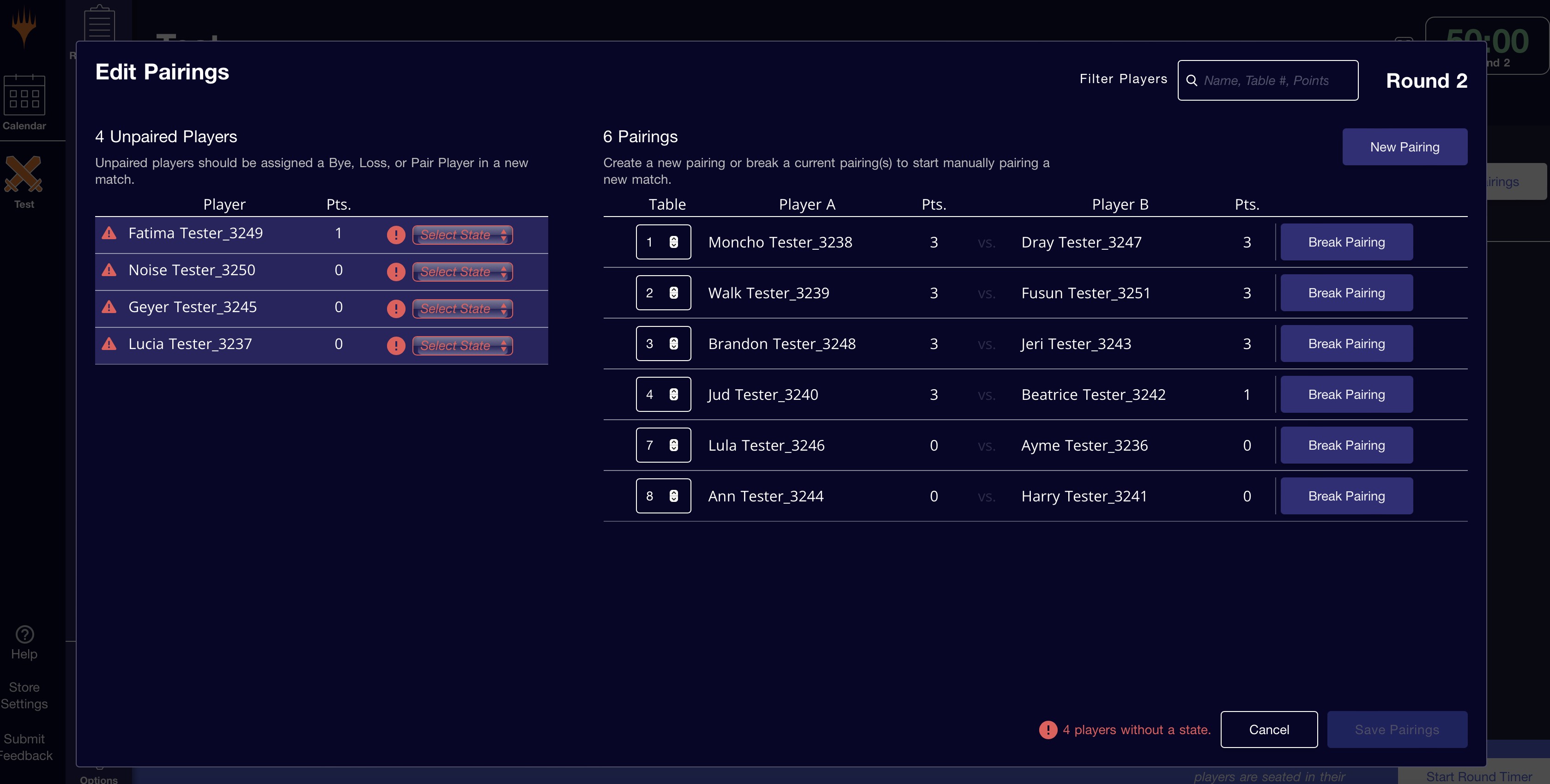Subject Matter Expert Interview & Task Flow
Due to the project's high priority and tight timeline, we opted to work directly with a resident Subject Matter Expert (SME) instead of conducting time-intensive interviews or focus groups with Tournament Organizers. The SME provided critical insight into how local game stores managed player frustrations caused by the lack of manual pairing by offering free card packs or simply stating there was nothing they could do. These issues typically stemmed from small errors like misreporting or players missing the start time.
Working closely with the SME, I mapped out an ideal task flow that addressed these scenarios and captured what a streamlined manual pairing experience should look like.








